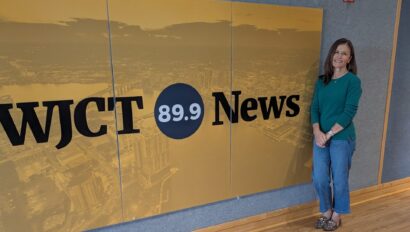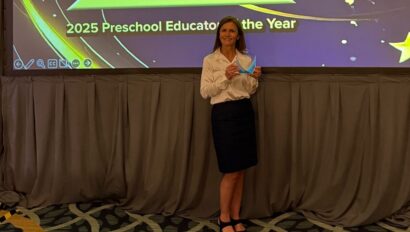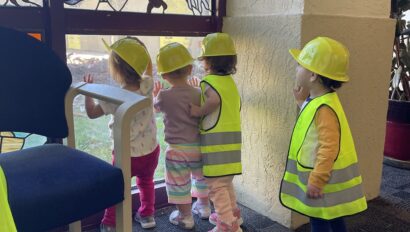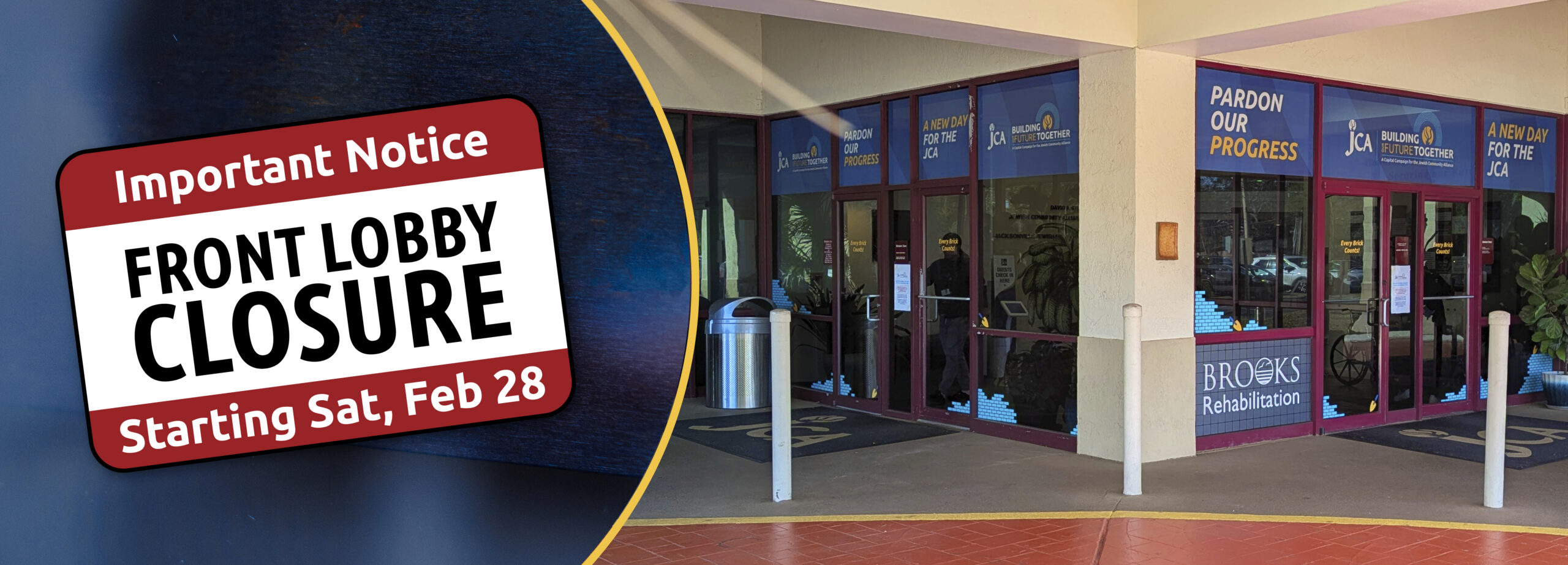By Natalia Fisher, Early Childhood Director
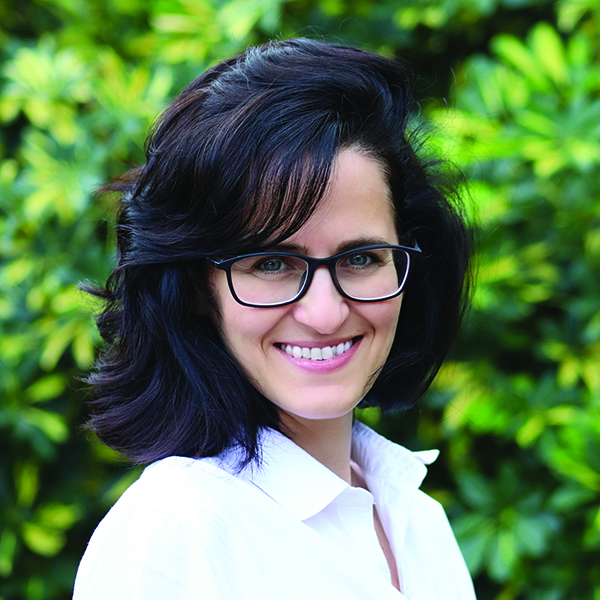
At Michele Block Gan Yeladim Preschool & Kindergarten, we are committed to expanding and enriching our teaching practices by continuously engaging in reflection, study, and research. One of the most recent rewarding experiences was a journey to Reggio Emilia, Italy to study and learn more about their famous approach to early childhood learning.
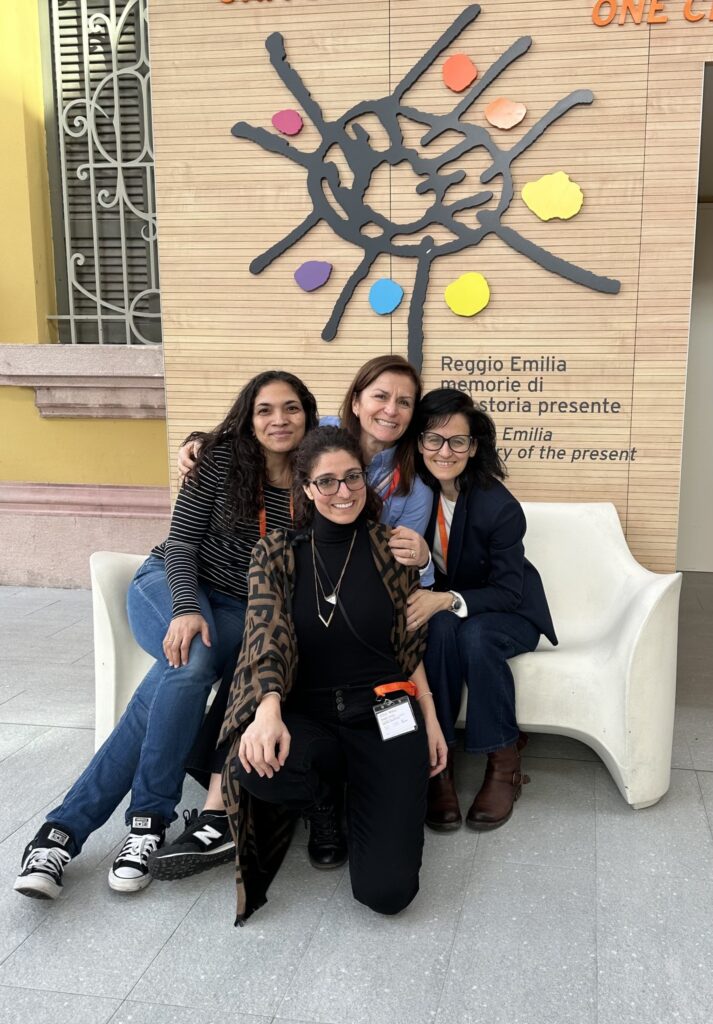
Front: Shannon Yancone
For one week, I traveled to Italy with three teachers: Kerstin Teutonico, Raquel Turknett, and Shannon Yancone, where we had an immersive learning experience. In Reggio Emilia, children are treated as active collaborators, not subjects or passive observers of teachers. The trip gave us further insight and inspiration on the many ways we can rethink and reshape our educational environment here at home.
Focusing on intentional documentation, thoughtful observation, and collaborative learning, one of the most significant takeaways of the trip was seeing the concept of documentation in action. In Reggio Emilia, Italy, it is not just used as a record of what happened, but documentation is used as an essential growth and reflection tool for each child.
Documentation is not just about noting down the children’s activities or progress; it is about capturing moments of learning, thought processes, and interactions to make them visible to educators and families. The records serve as a guide to reflect on the learning process and help teachers make informed decisions. Additionally, the process is about seeing education as a fluid and dynamic process rather than a static one.
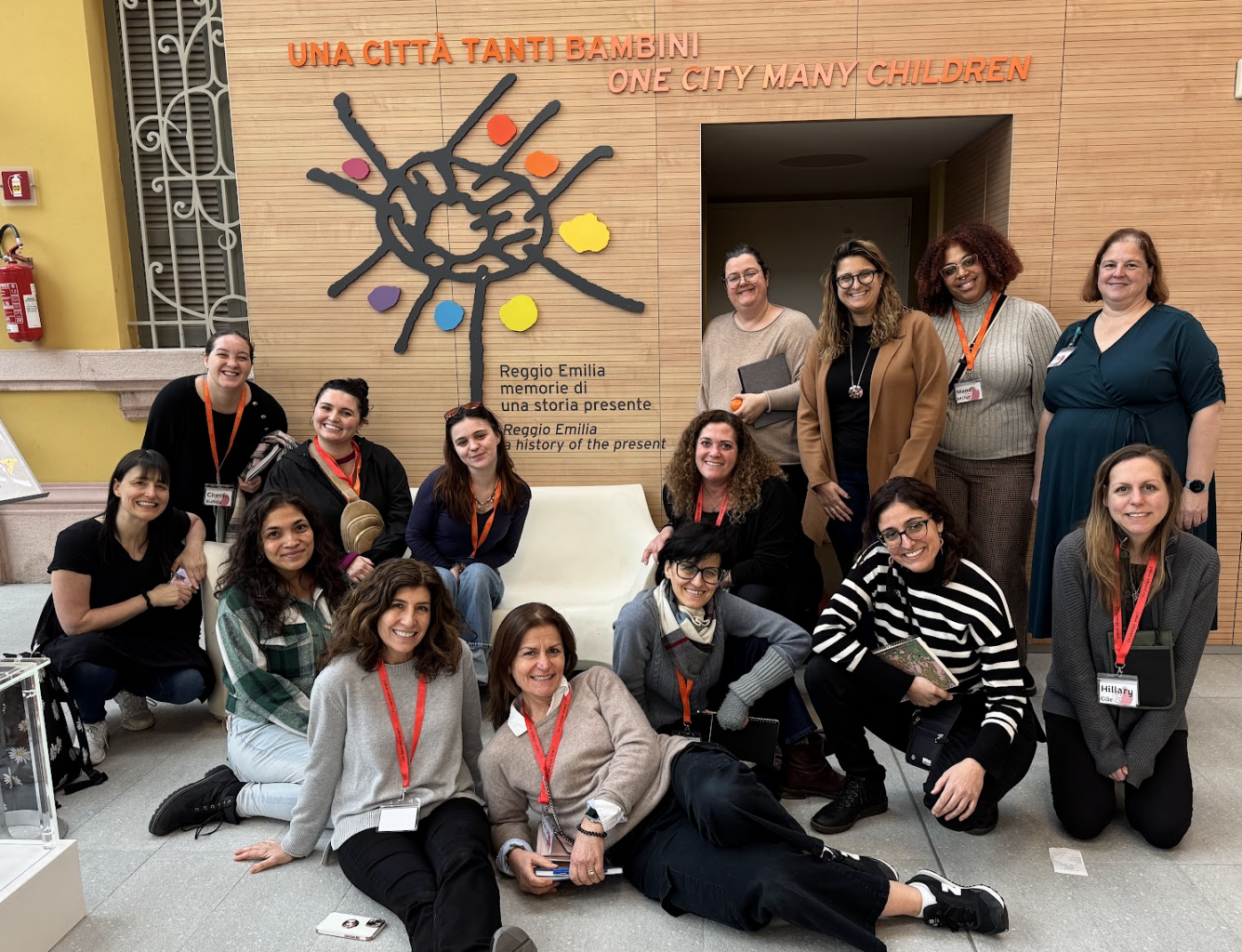
Junior Kindergarten teacher, Kerstin Teutonico, shared a powerful insight after the trip, “What resonated with me the most was how documentation is seen more as a lighthouse – giving us a focus for our next step.” A meaningful reflection, Kerstin helped us realize that our role as educators goes beyond simply delivering lessons. The idea of using documentation to navigate the path ahead aligns beautifully with our teaching philosophy at our school, where we strive to make every teaching moment intentional and purposeful.
We learned that when documentation is used effectively, it becomes a bridge between what was learned and what will come next, ensuring that each child’s journey is respected and nurtured. By making the process of learning visible, documentation also fosters deeper connections between teachers, children, and parents.
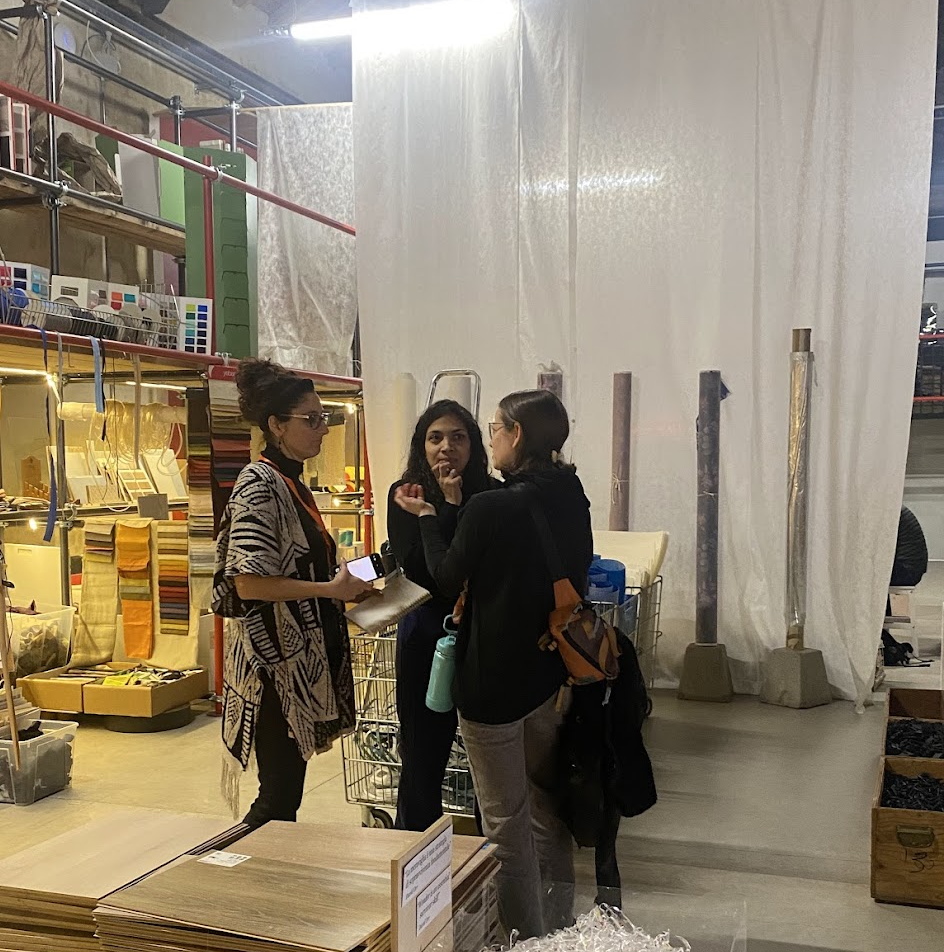
Raquel Turknett, a teacher in one of our Grasshopper classrooms, said she is inspired to continue exploring the significance of documentation noting how it plays an essential role in the learning process. Recognizing that documentation is not just about tracking accomplishments but about capturing the journey of learning itself: the struggles, the discoveries, and the joy along the way – Raquel is eager to learn more about how to make these processes visible in a meaningful way in her classroom. Raquel’s insight reminded us that documentation is more than just a record—it’s a way to tell the story of each child’s growth and development. Using documentation thoughtfully, helps us create a narrative highlighting the learning process and our children’s capabilities.
Junior Kindergarten teacher, Shannon Yancone, said she loved how teaching is fundamentally about being with the children in Reggio Emilia. Speaking about the importance of slowing down and listening to what the children are offering us in the moment, Shannon said this experience highlighted the contrast between making invitations for children’s engagement versus listening to their ideas, needs, and interests. When reflecting on the importance of listening versus ‘just’ making invitations, Shannon’s reflections remind us to focus on the needs and desires of the children in our care. This shift in mindset for a deeper connection with the children who come to our school will help us create learning environments that are even more responsive and engaging.
Instead of leading or directing children’s play or exploration, we can guide their learning by understanding their unique perspectives and meeting them where they are. When we slow down and pay attention to their voices (whether verbal or non-verbal) we open the door for more authentic learning experiences.
Our time spent in Italy was truly a transformative experience for everyone involved. It highlighted how vital it is for educators and students to share our experiences and theories with others so we can gain insight while we continue to evolve our teaching practices and help other educators in our community find inspiration.
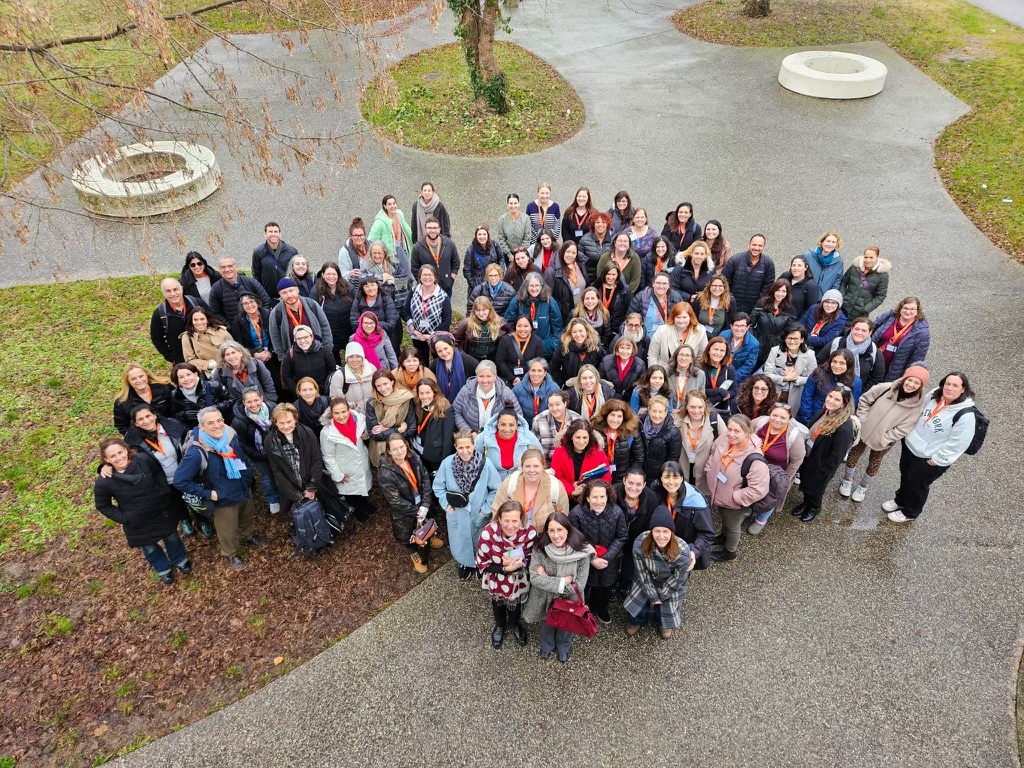
As we continue integrating insights from Reggio Emilia into our teaching philosophy, we are working to cultivate an environment where children’s curiosity and creativity are nurtured every step of the way. Through such experiences, we further understand that the educational journey is a dynamic and collaborative process – one that guides children and teachers toward brighter, more thoughtful futures. If you would like to know more about our approach to learning at Michele Block Gan Yeladim Preschool & Kindergarten, please email me, [email protected]. Parents, please email [email protected] to tour our school and learn more about how we create a more meaningful and enriching learning environment for children in Jacksonville.
